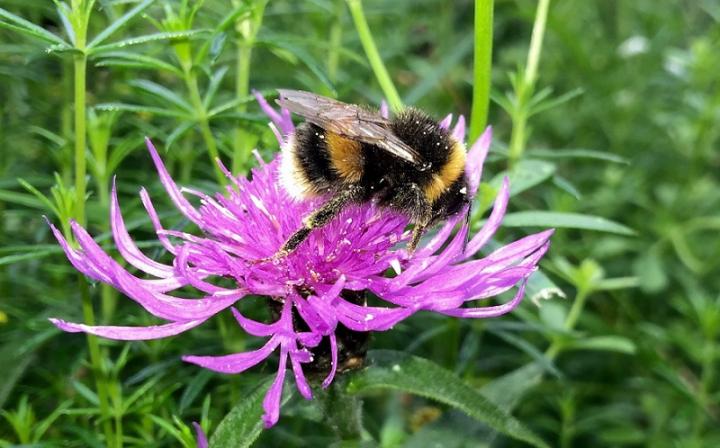City gardens help pollinating insects to thrive, study shows
Gardens and allotments in towns and cities are a haven for insects that help plants to flourish, research has shown

A study of insects in urban green spaces has also identified ways in which gardeners can encourage those that fertilise plants and flowers.
Bees, flies and other pollinators are drawn to spaces such as parks and roadside verges that are planted with species that they prefer to visit – such as dandelions, thistles, and brambles.
Mowing grass less frequently, allowing flowers to flourish, could also enable insects to thrive.
Of the different city habitats explored in the study, urban allotments and household gardens emerged as the best for pollinating insects. The study suggests that city planners should consider increasing the provision of allotments in towns and cities.
Cities could become important refuges for insect species, which face threats such as pest control on agricultural land and reductions in natural flower-rich habitats, according to the study.
Results from the four-year study, carried out by the Universities of Bristol, Edinburgh, Leeds and Reading in collaboration with the University of Cardiff, are published in Nature Ecology and Evolution.
The project is the first to examine pollinating insects across entire cities.
The UK Insect Pollinators Initiative is funded jointly by the Biotechnology and Biological Sciences Research Council, the Department for Environment, Food and Rural Affairs, the Natural Environment Research Council, the Scottish Government and Wellcome.
Pollinating insects are vital to supporting plant life, and urban spaces can play a key role in providing environments where, with help from their favourite plants, these creatures can flourish.

